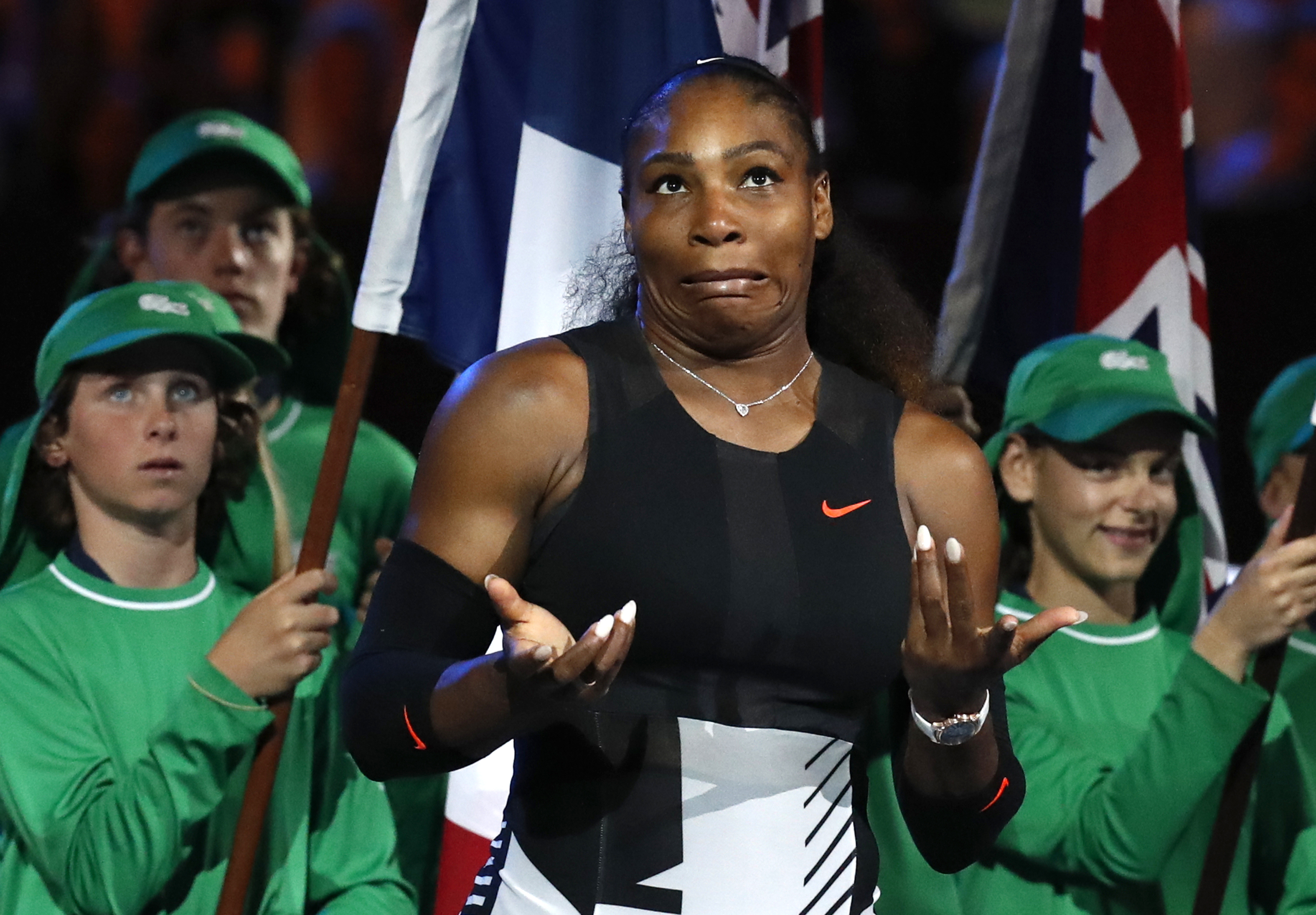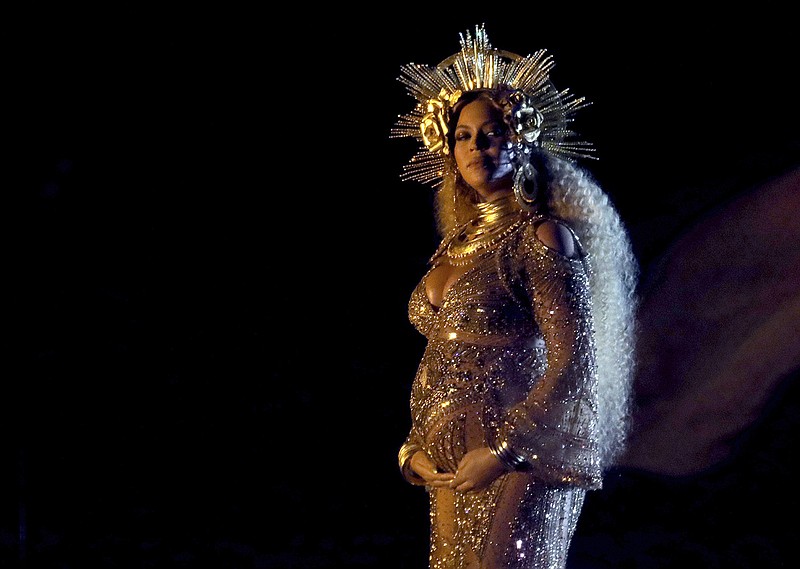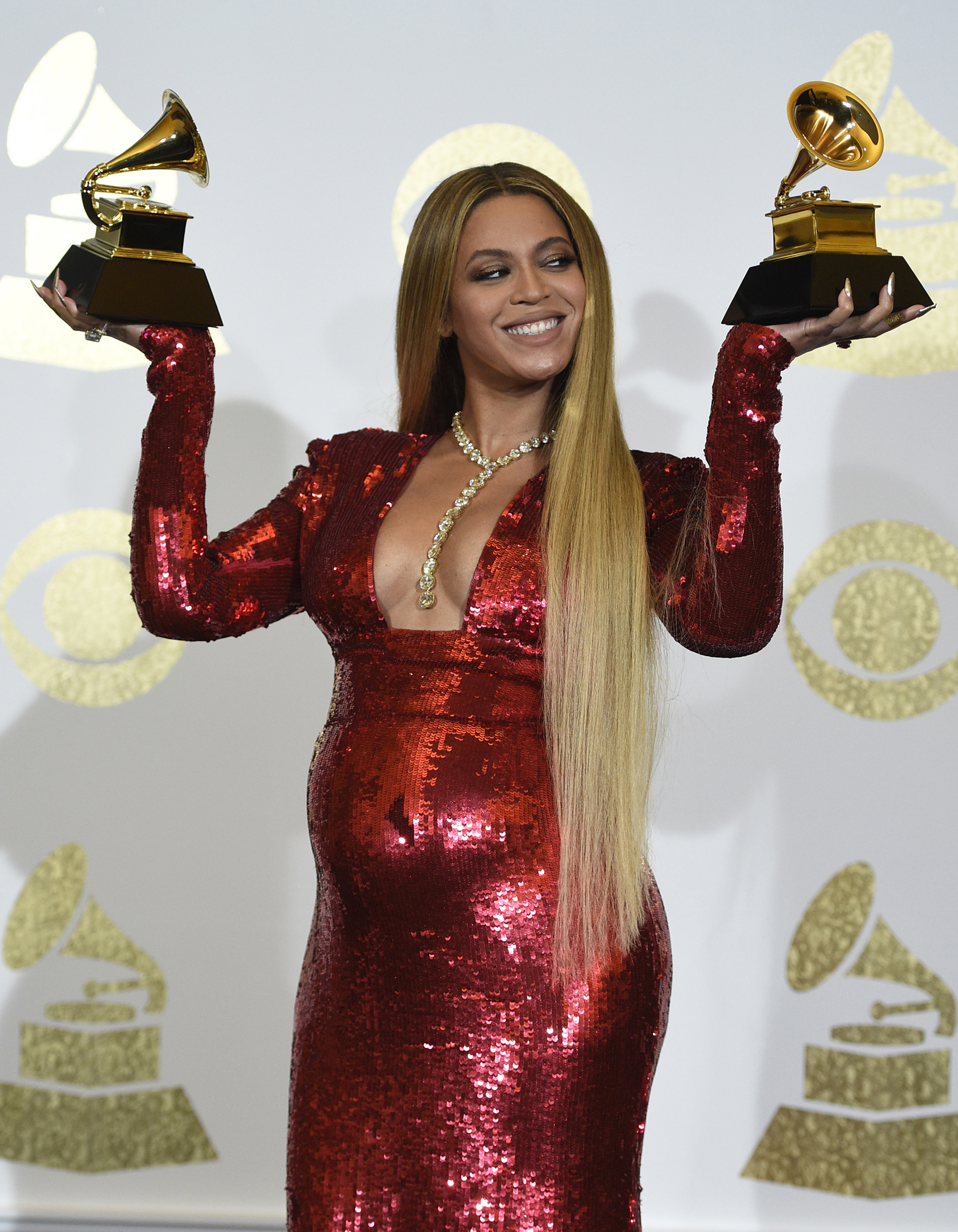One of the most famous women on Earth is now one of the most pregnant.
In February, Beyoncé announced she was carrying twins, and in the months since, she has boldly and gloriously reminded the world of the power of woman-and-motherhood. Performing pregnant. Accepting awards pregnant. Modeling pregnant. Wearing her pregnancy like a crown.
And everywhere that diva goes, the press is sure to follow.
"Beyoncé is a Pregnant Queen," gushed E! Online.
View other columns by David Cook
"The Mother of Us All," heralded The New York Times.
I wonder how ordinary, non-megastar women feel about this. Pregnancy isn't just Instagram and roses. Does Beyoncé's glamorous pregnancy somehow negate actual pregnancy, which can be tremendously difficult? Where are the front-page photos of Beyoncé with morning sickness? Swollen ankles? Worrying over how to afford day care?
I also wonder this:
Where is Jay Z?
In the story told by culture and Big Media, Beyoncé is the pregnant queen and Jay Z is baby-bumped to the sidelines, forgotten.
He's an almost equally famous global star, yet nobody is talking about him as a father or husband. No headlines. No interviews. No questions about fathering.
Yes, I know: Jay Z is not carrying the twins, nor is his body undergoing such radical, magical change. This is not to steal away from all that Beyoncé is doing and representing.
And yes, I know: They've had their troubles.
But this isn't about them so much as it's about us.
By not placing Jay Z at least near the center of this pregnancy story - again, he is married to the most famously pregnant woman on Earth - American culture minimizes the experience of fatherhood. It asks so little of Jay Z and, by extension, all men.
On a macro level, it sends the message that men do not have access to pregnancy in meaningful ways.
It trivializes and minimizes fatherhood.
The other night, the couple went to an NBA game, and cameras caught him rubbing her belly. Photos and headlines followed. Yet look closely: The only time Jay Z surfaces in this pregnant story is to rub Beyoncé's stomach at - here it is - the masculine-safe background of pro sports. (He was not rubbing her belly at, say, a breastfeeding class or women's march).
This is representative of the long-standing cultural problem: men and fathers seen in narrow, awkward ways. (Here, hold my beer while I rub my wife's belly.) Cultural fatherhood is often treated as an afterthought, allowing men to retreat from pregnancy and family as confused and inept bystanders.
This narrative is also a fancied, dressed-up version of the old wicked story: Children are women's work. Hyperfocusing on Beyoncé and over-ignoring Jay Z is an act of subtle sexism that asks everything of women and mothers and so little of husbands and fathers.
Another example.
Earlier this spring, Serena Williams, the most successful female athlete in the world, announced she was pregnant.
The gossip began.
"Can Serena Williams Return to the Top of Tennis After Giving Birth?" CNN asked.
"Are Serena's Playing Days Over?" Tennis magazine wondered.
"Will Baby Slow Down Her Tennis Career?" Hollywood Life questioned.
These questions reflect a double standard.
When Steph Curry announced the birth of his daughters, did anyone wonder whether he'd return to the NBA? Anyone ask if his playing days were over?
When Tom Brady became a father, did anyone ask him if his NFL playing days were over?
How about Peyton? Or Federer. Or any male pro athlete. Or celebrity. Politician. Business leader. When they become fathers, are they ever asked about the future of their careers?
 FILE - In this Jan. 28, 2017, file photo, Serena Williams reacts after defeating her sister Venus during their women's singles final at the Australian Open tennis championships in Melbourne, Australia. Williams said on April 25, 2017, at the TED2017 Conference in Vancouver, British Columbia, that she was taking a personal photo of her progressing pregnancy on Snapchat when she accidentally pressed the wrong button and made the post public last week. (AP Photo/Kin Cheung, File)
FILE - In this Jan. 28, 2017, file photo, Serena Williams reacts after defeating her sister Venus during their women's singles final at the Australian Open tennis championships in Melbourne, Australia. Williams said on April 25, 2017, at the TED2017 Conference in Vancouver, British Columbia, that she was taking a personal photo of her progressing pregnancy on Snapchat when she accidentally pressed the wrong button and made the post public last week. (AP Photo/Kin Cheung, File) To leave those questions unasked is to silently assume fatherhood will have little impact on those men, and therefore all American men. It leaves the heavy social lifting - fighting for maternal and infant health, for equal pay, for early childhood rights - on the shoulders of women.
It also keeps us as men away from fully engaging in the most transformative of roles: fathering.
So an early Happy Mother's Day to you, Beyoncé.
And Jay Z, an early Happy Father's Day. One question to you:
Will you return to your career after the twins are born?
David Cook writes a Sunday column and can be reached at dcook@timesfreepress.com or 423-757-6329. Follow him on Facebook at DavidCookTFP.

